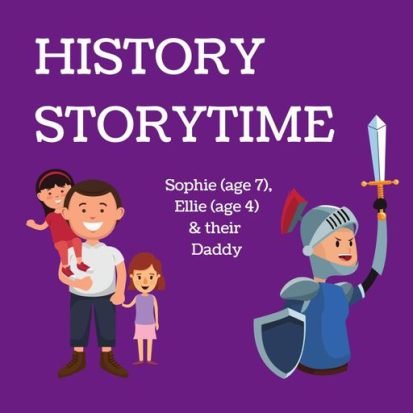
The History of New Year
Leave a reviewSophie (aged 7) and Ellie (aged 5) decide to tell the history of New Year going back four thousand years.—-more—-They start by going to the time of the ancient Mesopotamians. They tell how they Mesopotamians celebrated New Year at the start of Spring on March 25th. They had parties and invented the idea of New Year Resolutions. Fast forward to 2000 years ago and it is the time of the Romans. The Romans also celebrated the New Year on March 25th. But they had an important thing happen on January 1st. This was the date that the Consuls of Rome took charge. They were the people in charge of the city for that year. Over time Romans started to celebrate the day they took charge as the start of the year. But the Romans had a problem too. Their calendar was all wrong. Julius Caesar was ruler of Rome. He decided to fix the mistakes in the calendar and while he was at it, he change the start of the year from March 25th to January 1st. They also used to have massive parties on January 1st. After the Romans the Christians kingdoms of Europe kept having different days for the start of the New year. Some of them used the old March 25th date and others the January 1st date. Gradually, they all started to use January 1st. For some countries Christmas was more important than New Year. But for some countries New Year was far more important. One of those countries was Scotland. There they celebrated New Year with a festival called Hogmanay. The traditions of Hogmanay are very old. Some people think that they word is French and was brought to Scotland by Mary Queen of Scots. It used to be a tradition that it brought good luck if you had a dark haired man come into your house straight after midnight. Sophie wonders whether that because a blonde haired man would be a dangerous Viking. Hogmanay is still a huge festival in Scotland. In fact the Scots have a two day holiday afterwards! We end by telling some of the story of Auld Lang Syne and Sophie and Ellie sing the first verse. We wish you all a very Happy New Year. Thank you for listening to History Storytime this year.PATRONS’ CLUBDo please consider joining our Patron’s Club. Details are on www.patreon.com/historystorytime. You can access exclusive new episodes, be in an episode or choose an episode.
© History Storytime | 00:08:38
|
Full episode description
 Episode One: The Slave Trade
Episode One: The Slave Trade
This is an Episodic show. You can listen to it in any order, but episode one is always a great place to start.Full Episode description
Sophie (aged 7) and Ellie (aged 5) decide to tell the history of New Year going back four thousand years.
—-more—-
They start by going to the time of the ancient Mesopotamians. They tell how they Mesopotamians celebrated New Year at the start of Spring on March 25th. They had parties and invented the idea of New Year Resolutions.
Fast forward to 2000 years ago and it is the time of the Romans. The Romans also celebrated the New Year on March 25th. But they had an important thing happen on January 1st. This was the date that the Consuls of Rome took charge. They were the people in charge of the city for that year. Over time Romans started to celebrate the day they took charge as the start of the year.
But the Romans had a problem too. Their calendar was all wrong. Julius Caesar was ruler of Rome. He decided to fix the mistakes in the calendar and while he was at it, he change the start of the year from March 25th to January 1st.
They also used to have massive parties on January 1st.
After the Romans the Christians kingdoms of Europe kept having different days for the start of the New year. Some of them used the old March 25th date and others the January 1st date. Gradually, they all started to use January 1st.
For some countries Christmas was more important than New Year. But for some countries New Year was far more important.
One of those countries was Scotland. There they celebrated New Year with a festival called Hogmanay. The traditions of Hogmanay are very old. Some people think that they word is French and was brought to Scotland by Mary Queen of Scots. It used to be a tradition that it brought good luck if you had a dark haired man come into your house straight after midnight. Sophie wonders whether that because a blonde haired man would be a dangerous Viking. Hogmanay is still a huge festival in Scotland. In fact the Scots have a two day holiday afterwards!
We end by telling some of the story of Auld Lang Syne and Sophie and Ellie sing the first verse.
We wish you all a very Happy New Year. Thank you for listening to History Storytime this year.
PATRONS’ CLUB
Do please consider joining our Patron’s Club. Details are on www.patreon.com/historystorytime. You can access exclusive new episodes, be in an episode or choose an episode.
© History Storytimebop| Status: Inactive, 34 episodes | Kind: Episodic | Episode URL
The content, Artwork and advertising within this podcast is not owned or affiliated with Sound Carrot and remain the property of their respective owners.









